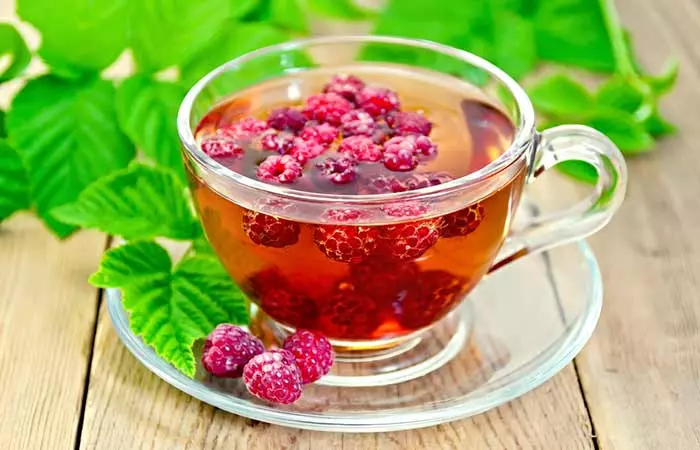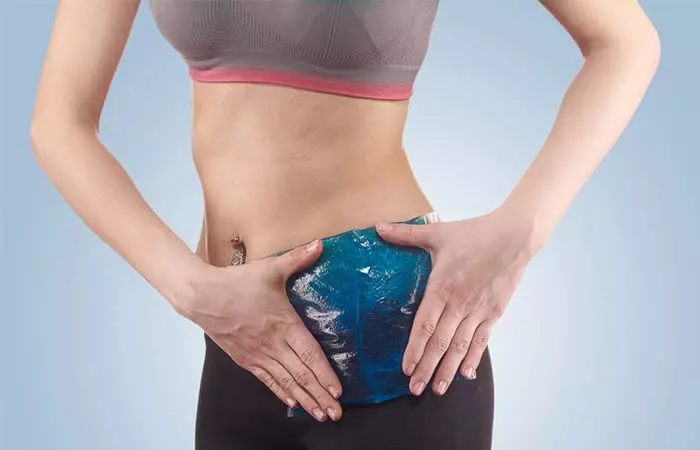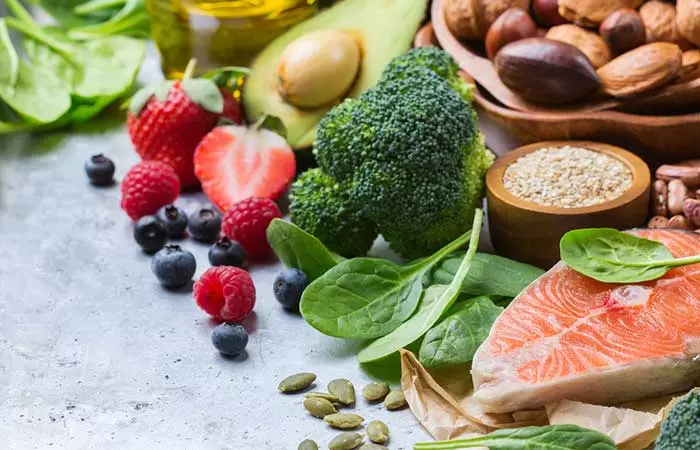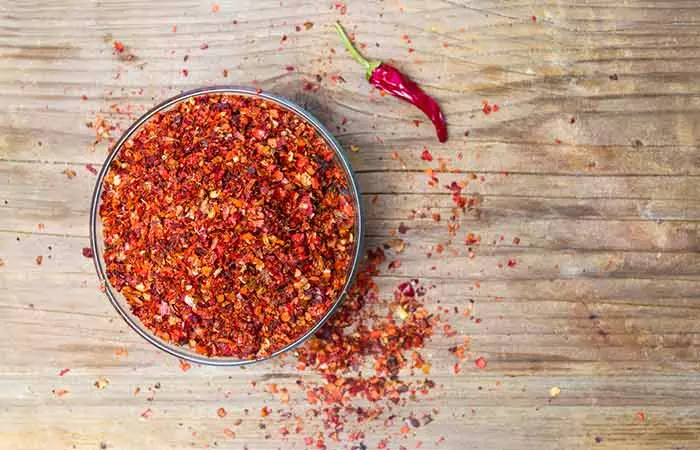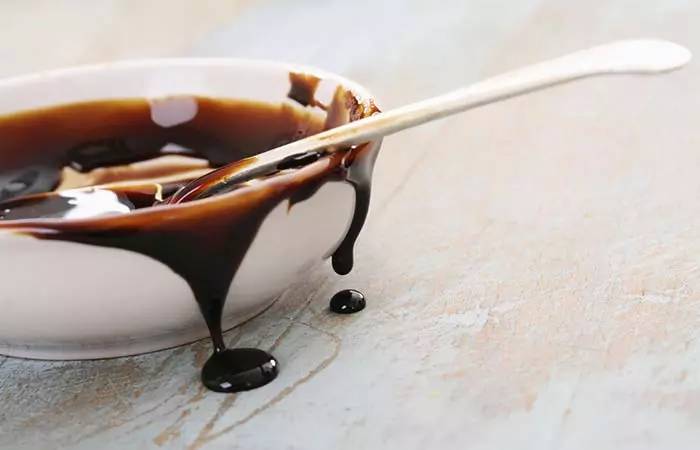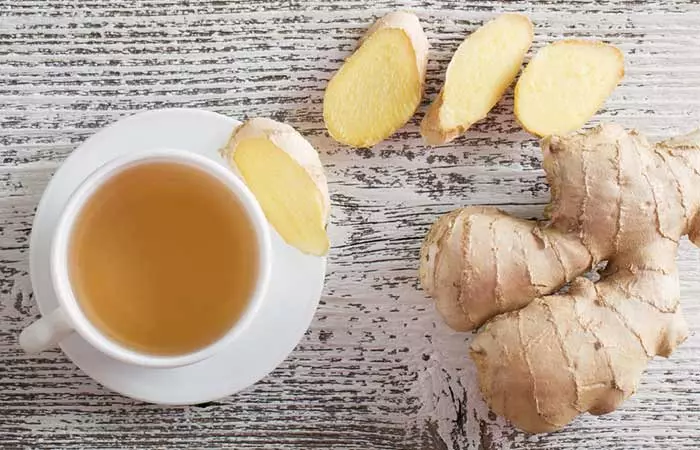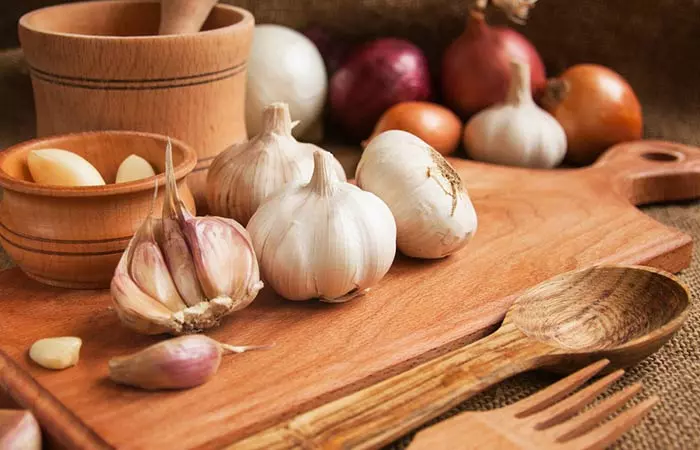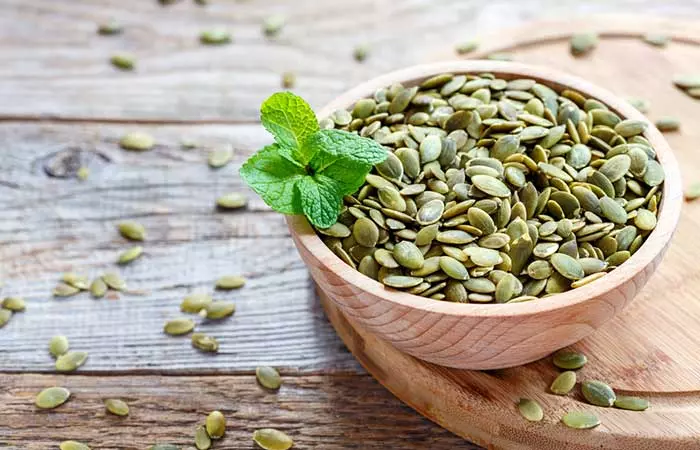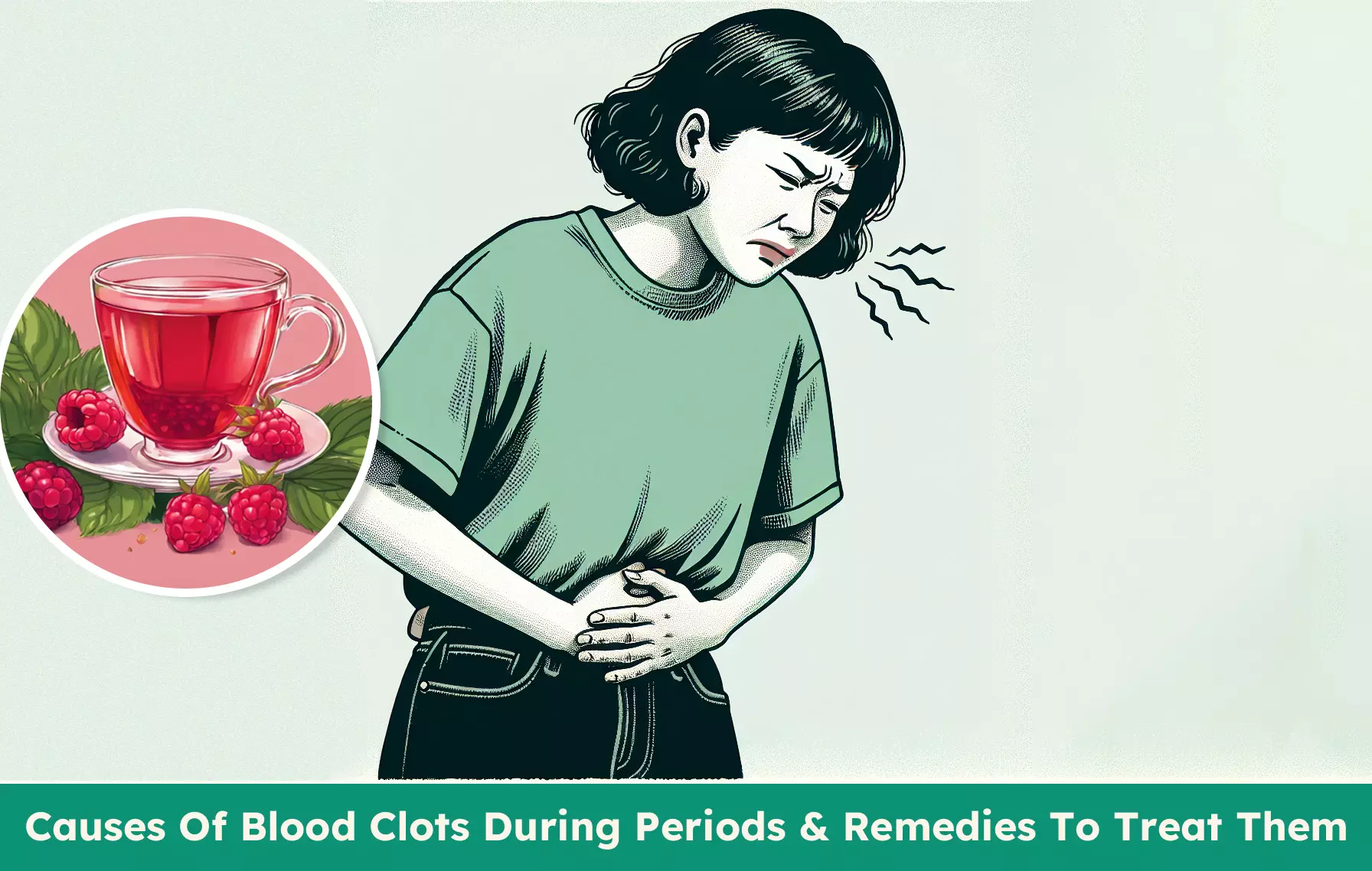What Is A Menstrual Blood Clot?
Menstrual blood clots are globs of coagulated blood that have a gel-like appearance. These globs can also be tissues and by-products of blood that are expelled from the uterus during the menstrual cycle. Small and less frequent blood clots are a common occurrence, and you don’t need to worry about them. However, if you are regularly passing large clots during your period, it could be an indication of an underlying medical condition. Blood clots are often classified as normal or abnormal, depending on their appearance. Let’s look at the types in detail
Types Of Blood Clots
Normal blood clots are usually:
Smaller (not larger than a quarter) Occasional (usually occur at the beginning of your menstrual cycle) Bright or dark in color
On the other hand, abnormal blood clots are:
Larger than a quarter Occur frequently
So, what causes these clots in the first place? Let’s find out.
What Causes Blood Clots During Periods?
The menstrual cycle of a fertile woman repeats every 28 to 35 days, lasting for about 4 to 8 days. It causes the shedding of the uterine lining (also called the endometrium). The endometrium, which thickens and grows in response to the hormone estrogen, supports a fertile egg upon conception. However, if a woman does not conceive during this period, this lining sheds off. This whole process is called menstruation. This shedding causes blood clots during menstruation. When the lining is shed, it may get mixed with
Blood Blood by-products Mucus Tissue
The endometrium usually pools in the bottom of the uterus and waits for the cervix to contract to be expelled. To help with the breakdown of this lining, your body produces anticoagulants. When the blood flow surpasses the amount of anticoagulants produced, it results in blood clots. Medical conditions responsible for heavy blood flow during your periods are:
Uterine obstructions that enlarge the uterus Fibroids, which are noncancerous muscular tumors that grow in the uterine wall Polyps, which are tissue growths that develop in the inner lining of your uterus Endometriosis, a condition in which the uterine lining grows outside the uterus and into your reproductive tract Adenomyosis, which occurs when the uterine lining grows into the uterine wall Cancerous tumors Hormonal imbalances Postpartum hemorrhage Uterine cancer and cervical cancer Pelvic inflammatory disease
According to a survey in 2023 about 66200 people in the United States are likely to be diagnosed with uterine cancer. It is the 4th most common cancer that affects women in the the US. In 2020, about 417367 cases were registered worldwide. It is more prevalent among Black women than White women in the US. The number people diagnosed with uterine cancer has been rising by 2% every year among women aged 49 and below and by 1% per year in elderly women. Hence, it is advisable to consult a doctor when you observe symptoms like blood clots in your period to avoid risks. Priyanka Gulati, a blogger, shares her battle with periods that started at the age of 14. She was anemic at the time, which led to heavy bleeding. She writes, “My vagina used to bleed ‘clots’ or in layman’s terms ‘big pieces of blood (i).’” She dreaded her periods until she turned 22 when a doctor treated her condition. Later when she turned 40, she was diagnosed with a polyp in her uterus that caused irregular periods and heavy flow. She shares, “One of the reasons for my problematic periods was hormonal imbalance induced by stress.” She recommends managing stress, exercising, and eating healthily to prevent this.
Side Effects Of Menstrual Clotting
Anemia due to abnormally heavy blood flow Severe pain or period cramps
To manage the discomfort during period cramps, consider exploring how to get rid of period cramps, such as using heating pads, drinking Chamomile tea, etc., for fast relief. We strongly recommended you visit a doctor if your menstrual blood clots are more frequent. This is to rule out potential complications. However, if they are occasional and you are not experiencing the above side effects, you can try these home remedies that can help in easing menstrual blood clots.
Home Remedies To Treat Blood Clots During Periods
How To Get Rid Of Menstrual Blood Clots Naturally
1. Red Raspberry Leaf Tea
1 teaspoon of red raspberry tea 1 cup of water Honey
You must drink this 2 to 3 times daily. Red raspberry may help balance your hormones and treat menstrual problems, as studied a research conducted in mice (1).
2. Massage
Various massaging techniques help improve reproductive system health and enhance blood circulation around the uterus. They can also ease away the menstrual blood clots as they improve blood flow (2).
3. Cold Compress
An ice pack You must do this whenever you observe blood clotting during your period or right before you are due. Cold compresses help constrict the blood vessels and have a numbing effect, which can ease the blood clots (3).
4. Vitamins
Vitamins A, B, D, and C help relieve heavy menstrual bleeding or clotting. Vitamin A ensures proper replication of red blood cells, and its antioxidant properties protect cells from damage. B vitamins, especially vitamin B6, are necessary for producing prostaglandinsi A group of active lipid compounds with hormone-like effects, such as inducing labor and regulating other hormones. that help reduce blood clots. Vitamin D balances hormones to alleviate excess bleeding. And lastly, vitamin C can help strengthen your fragile cells and blood vessels, thereby easing blood clots (4).
5. Cayenne Pepper
½ teaspoon of powdered cayenne pepper 1 glass of warm water Honey
You must drink this twice daily. Cayenne pepper enhances blood flow, which is why it is used to treat various bleeding disorders (like hemorrhage). Regular consumption of cayenne peppermay help improve blood flow(5).
6. Blackstrap Molasses
1-2 teaspoons of blackstrap molasses 1 cup of warm water or milk
You must drink this once daily during your period or right before it begins. The iron in blackstrap molasses encourages the production of red blood cells, thereby replacing the excess blood lost during menstruation. It also soothes your uterine muscles and walls, alleviating pain and blood clots.
7. Ginger Tea
1 teaspoon of minced ginger 1 cup of water Honey
Drink this twice daily for optimum benefits. Regular ginger intake can reduce heavy blood flow and clots during menstruation, as per a study published in Phytotherapy Research (6).
8. Chamomile Tea
1 teaspoon of chamomile tea 1 cup of water Honey
You must drink chamomile tea on a daily basis. The coumarin in chamomile tea helps in blood thinning, which helps in reducing blood clots. And the tea’s anti-inflammatory properties help you deal with menstrual cramps and pain (7).
9. Garlic
Minced garlic You must do this daily, especially when you are on your period. Sulfur, an important compound in garlic, exhibits anticoagulant activity against clotting disorders like thrombosisi Formation of a blood clot inside a blood vessel, obstructing the blood flow in the circulatory system. (8). Hence, garlic can help to get rid of menstrual blood clots.
10. Pumpkin Seeds
2 tablespoons of roasted pumpkin seeds Consume pumpkin seeds daily. Pumpkin seeds contain phytosterolsi Plant-derived compounds that help lower cholesterol levels and reduce the risk of heart ailments. as well as omega-3 polyunsaturated fatty acids (which get converted to prostaglandins) that can help ease blood clots during menstruation (9), Prevention is always better than cure, especially when it comes to your health. In addition to the home remedies, you can also follow these prevention tips to deal with blood clots during menstruation.
11. Apple Cider Vinegar
You Will Need
1-2 tablespoons of apple cider vinegar 1 glass of water Honey (optional)
What You Have To Do
Add 1-2 tablespoons of apple cider vinegar to a glass of water. Stir well. Add honey to sweeten the mixture if you’d prefer.
How Often You Should Do This
Consume it twice a day during your periods.
Why This Works
Anecdotal evidence suggests that apple cider vinegar may help reduce the discomfort associated with heavy menstrual flow. This could be due to the potassium in apple cider vinegar (10). In one study, intake of diclofenac potassium, a drug high in potassium, was found to reduce menstrual cramps (11). However, whether potassium found in natural foods, like ACV, helps ease menstrual discomfort is yet to be studied. While these remedies may help, what if you could prevent these blood clots in the first place? Learn more from the tips below.
Prevention Tips
Avoid consuming foods that contain vitamin K. Consume fruits rich in vitamin C. Drink lots of water and keep yourself hydrated. Exercise regularly.
How long do you bleed on your period? Bleeding during periods may last anywhere between 2 to 7 days. Bleeding that continues for longer may need medical attention. Is it normal to have a blood clot when you are on your period? It is completely normal to notice blood clumps or clots during your periods. But if these clots are accompanied by heavy blood flow and last for more than one normal period, it could be an indication of an underlying medical issue. Are blood clots a sign of miscarriage? If you are pregnant, rapid bleeding and cramping, accompanied by contractions, can lead to the removal of large blood clots and tissues from your uterus. This is most often a sign of a miscarriage. What does the color of your period blood tell you? While bright red blood hints at the beginning of your cycle, dark red blood occurs towards the end and is an indication of the end of your period. Brown or black blood is usually present at the very end of your period and has been around for longer whereas light brown blood usually surfaces at the very beginning of your period, right before you notice the bright red spotting. When to see a doctor? You must visit your doctor immediately if: • Your pad or tampon is soaked in blood in an hour for several hours • You experience irregular bleeding • You experience vaginal bleeding after menopause Can ovarian cysts cause blood clots during a period? Yes, if an ovarian cyst bursts, it may cause blood clots. Additionally, the cysts may lead to heavy, uncomfortable menstruation and irregular periods. Do blood clots make you tired? Yes, blood clots during periods can make you feel weak and tired. Does walking prevent blood clots? Yes, walking can help prevent blood clots by boosting blood flow and making you feel better during your period. However, be careful not to overdo it. Can stress cause blood clots? Yes, external causes like stress can make your period heavier and lead to blood clots.
Illustration: Causes Of Blood Clots During Periods & Remedies To Treat Them
Discover the best homeopathic treatments for passing clots during periods. Check out the video below to know how to manage this condition naturally and effectively. i. Chums in chunks https://paddlingfoundation.wordpress.com/2020/03/22/chums-in-chunks/
